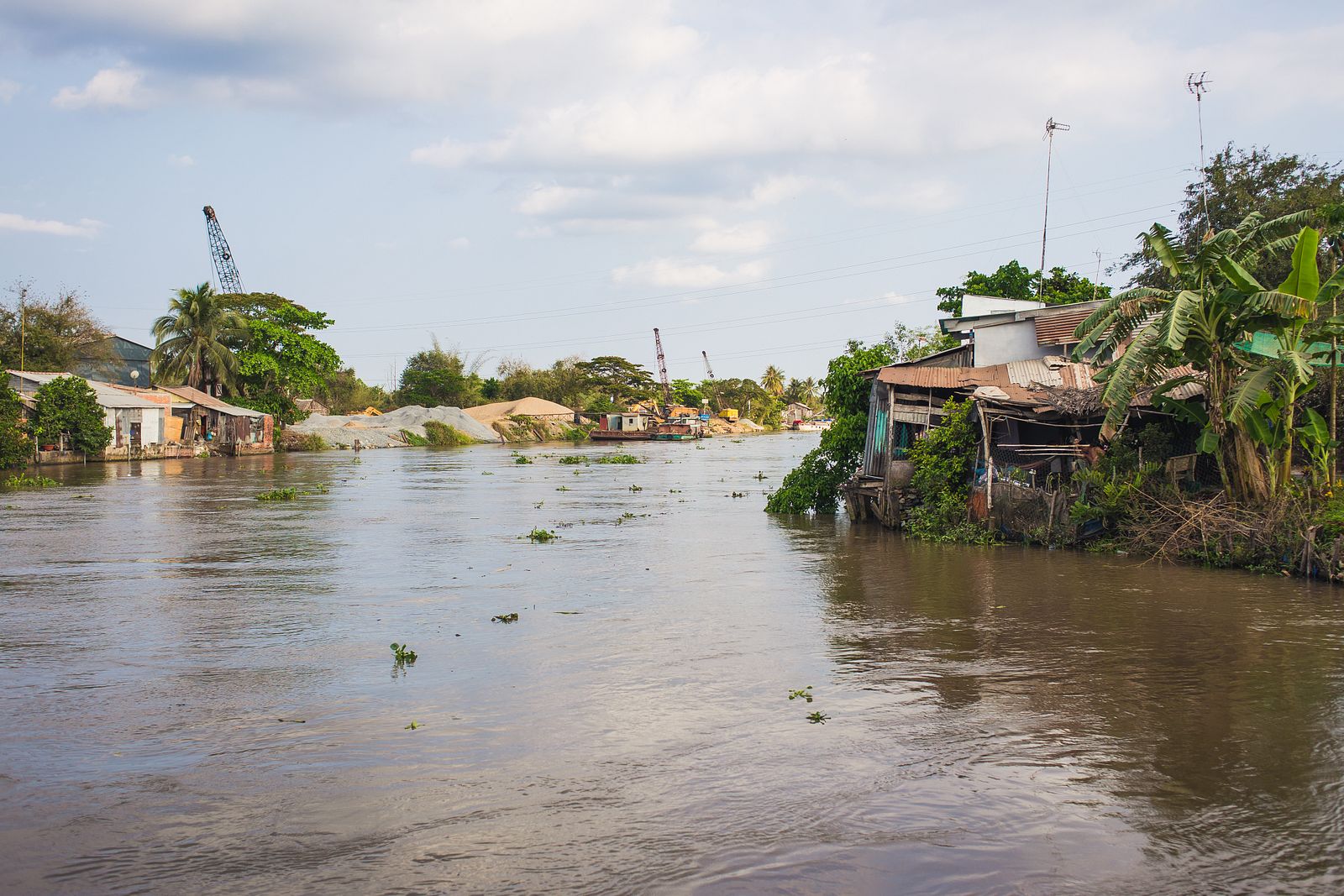An environmental emergency has been declared in the Mekong Delta province of Ben Tre after local saltwater intrusion reached alarming levels
As Tuoi Tre reports, on January 14, the People’s Committee of Ben Tre announced that the province entered an “urgent situation” due to saltwater intrusion. According to data from the Ben Tre Hydro-Meteorological Center, the salinity situation of river systems in the area has worsened “suddenly and swiftly.”
Ben Tre was the first province in the delta hit by the phenomenon due to its coastal position and extensive river network, made up of the Mekong, Ham Luong and Co Chien rivers. Saltwater started seeping inland as early as December last year.
It’s estimated that the current degree of intrusion approximates that of the historic drought that ravaged the Mekong Delta during the dry season of 2015-2016. This spells an imminent disaster for farmers, as salinity is expected to worsen in January. Water with salt content of 4% has the potential to extend as far as 53–68 kilometers inland from estuaries.
At a conference on drought prevention held earlier this month, Minister of Agriculture and Rural Development Nguyen Xuan Cuong recounted the Mekong Delta’s worst experience of drought and saltwater intrusion in 2015.
“That year, 450,000 hectares of rice fields were damaged, costing [the delta] one million ton of rice; 136 hectares of fruit plantations were also affected by various levels of seawater intrusion,” Cuong said. “Additionally, half a million of citizens also faced a shortage of freshwater.”
To combat damage the seawater can cause to daily life, Ben Tre has ordered water tanker trucks and barges to supply fresh water to hospitals, industrial zones, public schools and other public venues. Moreover, temporary structures like embankments and pumps are hoped to tide communities over during the dry spell.
In July last year, central provinces also witnessed unprecedented degrees of salinity, which reached 12 to 13 times more than the normal limits.














